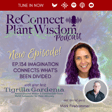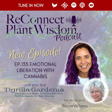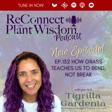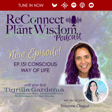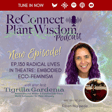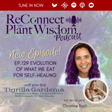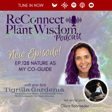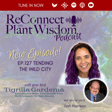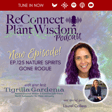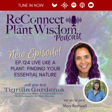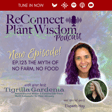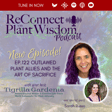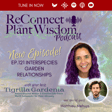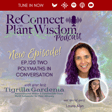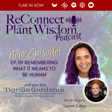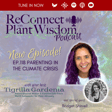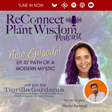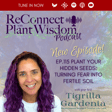
Ep.116 How to Green Up Your Bathroom with Joshua Onysko
In this episode, I sit down with Joshua Onysko, a serial entrepreneur and eco-innovator, to unpack one of the biggest challenges facing us as plant lovers and conscious humans: plastic pollution. We dive deep into why plastic is still everywhere, why recycling isn’t the full solution, and how big corporations keep pushing cheap plastic despite the environmental cost. Joshua shares his journey of creating truly plastic-free skincare brands and highlights some inspiring innovations, like modular, repairable tech and plantable packaging.
This episode offers tangible insights and inspiration to green your life without the overwhelm.
Topics Covered about Plastic Pollution Solutions
➡️ Why plastic persists despite environmental harm and the limits of recycling
➡️ The power of reconnecting with plant kin to shift consumer behavior naturally
➡️ Innovations in zero-plastic skincare, modular tech, and plantable packaging
➡️ How everyday choices and consumer pressure can drive systemic change
Chapters
00:00 Introduction
08:10 Rethinking personal-care habits & consumption
16:15 Glass vs Plastic: truth about packaging and recycling
19:42 Fairphone
24:30 Product redesign: aluminum tubes & zero-waste swaps
32:45 Consumer power: influencing supply chains for change
41:00 Hidden health risks: EMF, toxins & bathroom air quality
57:40 Daily green-bathroom rituals & mindset shifts
65:00 Closing reflections
Resources Mentioned
🌱 Pangea Organics
🌱Alpine Provisions
🌱 Naturally Conscious Community
Expanded Show Notes
☝🏽ReConnect with Plant Wisdom podcast Ancient and modern knowledge from biology to spirituality about the wondrous ways plants help you lead a Naturally Conscious life.
Subscribe here and on your favorite podcast player.
👉🏽 Join the Naturally Conscious Community to nourish human-plant relationships
// Get to Know Me, Tigrilla //
// Let's Work Together //
// Shop from EcoConscious Partners //
Fairphone
More Partners
Opening and Closing music by @Cyberinga and Poinsettia.
// Let's Connect on Social // Facebook | Instagram | LinkedIn | Youtube

